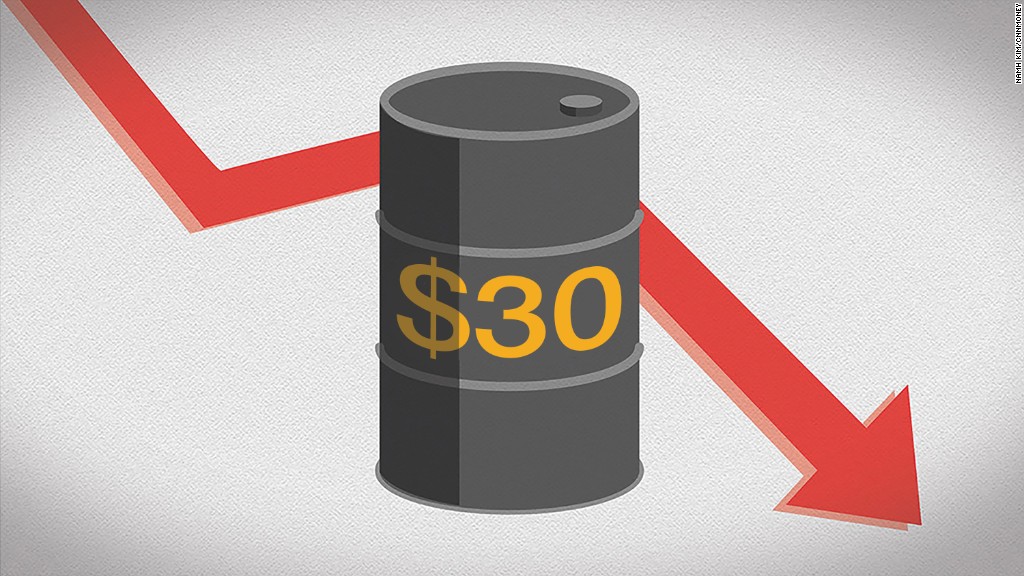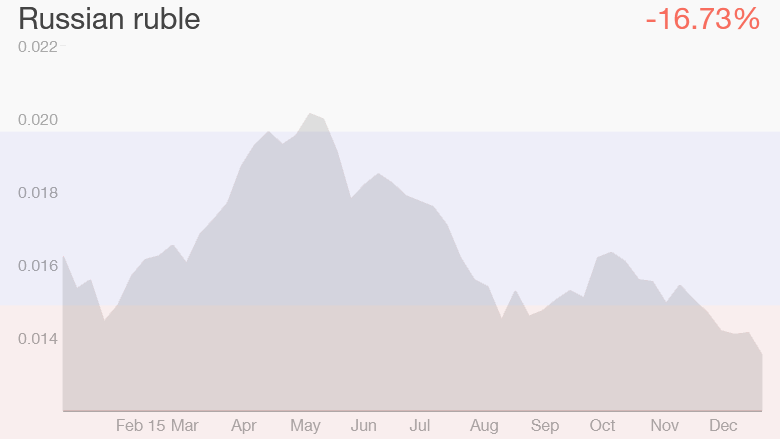
Uh-oh. Russia is on a slippery slope.
The country is considering slashing government spending by 10%, as further falls in the price of oil bite deep into revenues. Russia's top finance official Anton Siluanov has ordered government departments to come up with ideas for spending cuts, telling them they must face up to reality.
The latest slump in oil prices to $30 per barrel risks deepening Russia's recession and is hurting the country's currency. The ruble was trading at 76 to the U.S. dollar on Wednesday, near a record low posted in late 2014 when oil first started crashing.
Speaking at a business forum in Russia, Siluanov said it was time for the "public sector to adjust to the new economic conditions."
Years of economic mismanagement made Russia vulnerable to the oil collapse. Half of Russia's government revenue still comes from its energy exports, and as oil prices fell from over $100 to around one third of that in just 18 months, the country found itself under enormous pressure.
Russia already cut spending by 10% last year. President Vladimir Putin even took a pay cut, slashing his 9 million rubles ($110,000) annual salary by 10%.
But millions of ordinary Russians are paying the price of austerity and high inflation. Prices rose 12.5% in 2015 while wages kept dropping, leaving many people much worse off.
Official statistics show that over 20 million Russians, roughly 14% of the population, are now living in poverty. That compares with 16 million in 2014.
Things are unlikely to get much easier any time soon.
"Even a marked rebound in oil prices would be unlikely to spur a return to reasonable rates of economic growth and consumers in particular will remain under pressure," said Neil Shearing, chief emerging markets economist at Capital Economics.

Related: How low will oil prices really go?
To balance its books, Russia would need to sell oil for $82 per barrel, Siluanov said. The government based its 2016 budget on oil at $50 per barrel, and was planning for a deficit of 3%. That's the maximum Russian President Vladimir Putin has said he will allow.
With oil trading just above $30, more cuts are inevitable.
Russia's economy shrank by nearly 4% last year, and the International Monetary Fund expects a further contraction of about 1% this year.


